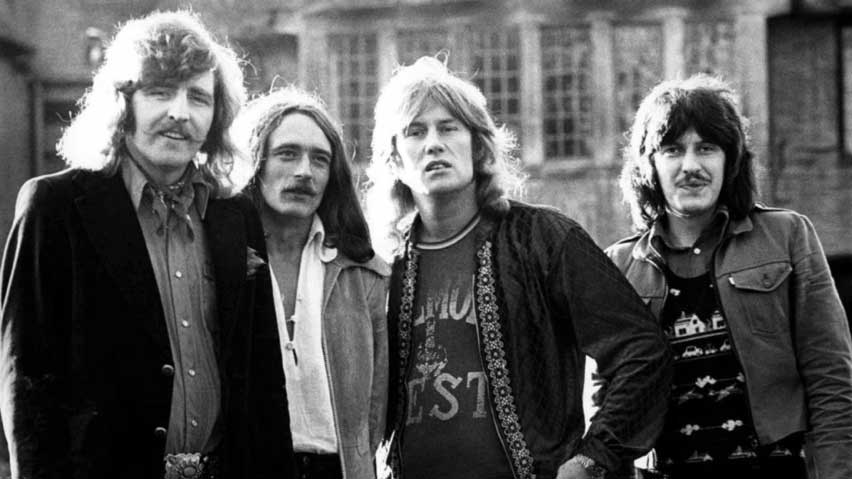It was getting dark by the time Ten Years After took the stage at Woodstock back in 1969. The rain had come bucketing down mid-way through the afternoon, just as they’d been about to go on, drenching the stage and turning the site into a quagmire.
The audience – variously estimated at between 350,000 and 500,000 – was wet, chilled and bedraggled; many of them were the worse for wear after three days in the open. The band weren’t in much better shape, having travelled overnight from St Louis, making the last leg by helicopter and then being cooped up on-site in the back of a trailer, waiting for the rain to stop.
In the movie of Woodstock, the camera picks out the skinny frame of TYA’s Alvin Lee, his boyish face ringed by shoulder-length blond hair. “This is a thing called ‘I’m Going Home’… by helicopter!” he announces, and for a dozen seconds he rattles out notes on his trademark Gibson guitar that sound like a sustained burst of machine-gun fire.
The band then kick into a breakneck boogie and the song takes off; Alvin spits out the vocals, filling in the spaces with more guitar salvos. The camera remains fixed on him; there are just occasional glimpses of keyboard player Chick Churchill, drummer Ric Lee (no relation) and bassist Leo Lyons, who is headbanging furiously. Alvin leads the song high and low, never letting the pace flag, until nine minutes later he builds to a final warp-speed cacophony.
The crowd, their central heating now restored, erupts.
When the Woodstock movie came out in late 1970 (more than a year after the festival) it did for Ten Years After what Live Aid did for Queen and U2: transformed them into superstars. Suddenly TYA were the new heroes of British blues rock. Or, as Alvin puts it: “That’s when 14-year-old girls started showing up to our gigs with ice-creams.”
Ten Years After had been in the vanguard of the second (heavier) invasion of the U.S. by British groups, touring relentlessly and rapidly reaching top-of-the-bill status. “We had this thing – and looking back I’m a bit ashamed of it now – that we had to sting any band that went on after us,” Alvin recalls. “We used to go out of our way to blow them off and make them look bad.
(Image credit: Gems / Getty Images)

